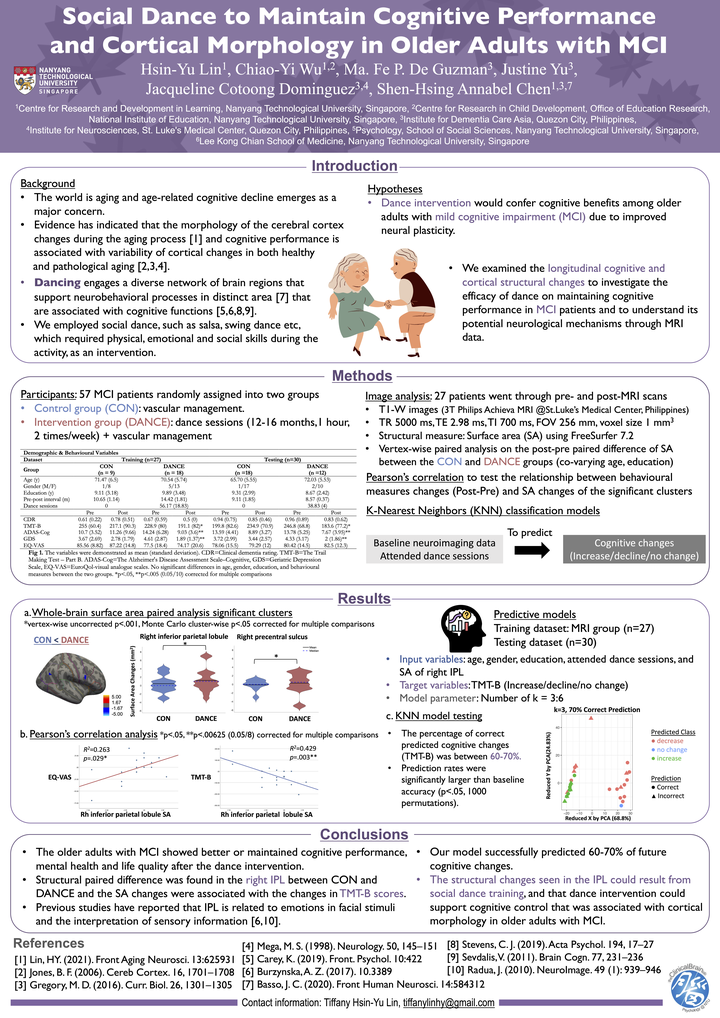Social Dance to Maintain Cognitive Performance and Cortical Morphology in Older Adults with MCI

Abstract
Dancing engages a diverse network of brain regions that support neurobehavioral processes that are associated with cognitive functions. In this study, we proposed that dance intervention would confer cognitive benefits among older adults with mild cognitive impairment (MCI) due to improved neural plasticity. We employed social dance as an intervention to examine the longitudinal cognitive and cortical structural changes. We aimed to investigate the neurological mechanisms and efficacy of dance to improve the cognition of older adults with MCI. Significant paired differences were found in right inferior parietal lobule (IPL) and precentral sulcus, and the mean surface area changes in IPL were associated with changes in cognitive test scores. A predictive model was built and predicted 70% of future cognitive changes. These findings suggested that dance intervention may maintain cognitive function associated with cortical morphology in older adults with MCI.